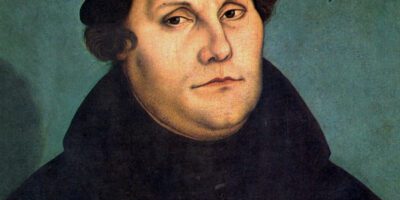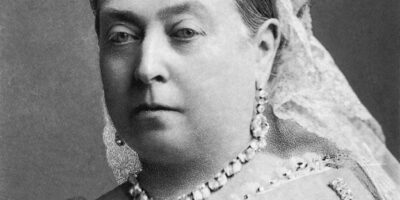
Photo by Masters of Achievement by Wikimedia
Top 10 Unknown Facts About Immanuel Kant
Immanuel Kant was born on April 22, 1724, in Konigsberg (Kaliningrad)town of Prussia (Russia), and died on February 12, 1804, in Konigsberg, Germany at age of 79. He was the son of Johann George Kant and Regina Kart, the fourth born of Johnna’s nine children and the oldest surviving child. His father was a harness maker.
Both parents were devoted followers of the Pietist branch of the Lutheran church. The influence of their pastor made it possible for Kant to obtain an education. At age of eight, Kant joined the Pietist school that his pastor directed. It was a Latin school, for eight and half years he was there he acquired his lifelong love for the Latin classics.
Immanuel started his education at Konigsberg school, where he later joined the University of Konigsberg in 1740, to learn theology. When his father died in 1746, he had to drop out of school due to financial problems and started practising as a private tutor.
In 1755, he returned to university and received his doctorate in philosophy late in the same year. In 1770, he became a full Professor at the University of Konigsberg and started teaching metaphysics, aesthetics, ethics, and moral philosophy.
Kant was one of the greatest thinkers and philosophers.
He focused mainly on ethics and moral study when he proposed a moral law called Categorical Imperative. He continued to refine his theories in his books Critique of Pure Reason and the Critique of Judgement and others.
1. Immanuel was a Great Philosopher
At the beginning of Kant’s work is the doctrine of transcendental idealism that explains the difference between what we can experience (natural) and what we can not (supersensible objects like God and soul).
His work elaborated on some of his philosophies as moral philosophy, critique of metaphysics, political philosophy, and epistemology in modern philosophy. He distinguished between analytic and synthetic propositions.
Kant’s philosophies are referred to as the greatest influencer by many philosophers when it comes to the development of idealism. German idealists tried to reverse Kant’s view that we can know what we cannot observe.
2. Immanuel Kant was a Great Author

Immanuel Kant
Photo by Masters of Achievement from Wikimedia
He wrote over 25 books during his career life, these are The Critique of Pure Reasons published in 1781 and edited in 1789, Critique of Practical Reasoning in 1788, Groundwork of the Metaphysics in 1785, Critique of Judgement in 1790, Perpetual Peace in 1795, Metaphysics of Moral in 1797 and others.
3. He was Born into a Low-Income Family
He was born into a family of modest means, and his father was a harness maker. When his father died, he dropped out of school until when his friends helped him financially to complete his education.
For a few years, Kant was employed as a tutor in several families in different parts of East Prussia. At this time he was still studying and in 1755, he pursued his master’s degree at Konigsberg and started teaching at the University of Privatdozent.
He taught many subjects including Mathematics, Physics, philosophy as well as physical geography, nevertheless, he remained poor for many years.
4 Never Left his Hometown

Immanuel Kant
Photo by Masters of Achievement from Wikimedia
He stayed in a remote province where he was born for his entire life. The furthest know he travelled was about 100km when he was a tutor in the parts of East Prussia.
He was requested to become a Professor at Berlin but declined the honor. In his letter, he did not feel his health would allow it.
5. Believed in God
He was raised in a Priest household that stressed religious devotion. He considered himself a theist rather than a deist because he was committed to a free and moral living God.
When analyzing his theoretical doctrine in the articles of faith, he stated that he believed in the existence of one God who provides all good things and the possibility of harmonizing God’s purpose.
6. Kant Changed his Name
Kant was born a Prussian German of Lutheran protestant faith where he was baptized Emmanuel, after learning Hebrew, he changed its spelling to Immanuel. The new name was to rhyme with the German naming practices.
7. Kant had Health Problems
He had an abnormal body structure with deformed shoulders and a concave chest and his head was too large compared to a German male. This led him in taking too many drugs for medication trying to resolve his various conditions and instead worsening his conditions.
Due to his worsened health conditions, he had a strict systematic routine of drinking a half bottle of red wine every day after having dinner. Late in his life, he was frustrated to learn he had a problem with memory loss issues.
8. He had a Rewarding Social Life

Immanuel Kant
Photo by Masters of Achievement from Wikimedia
He lived a strict and disciplined life; neighbours could set their clock by his daily work. He was a popular teacher and a successful author before his major in philosophy work. He had a circle of friends who they frequently met.
Though he was never married, he was content with his status. For those who knew him, they describe him as a sparkling conversationalist as well as a captivating lecturer. He was very entertaining at home and a prominent figure in the community.
9. Kant was a Tutor and a Lecturer
After his father died in 1746, he became a private tutor in towns surrounding Konigsberg. In 1755 he received a lecture license from the University of Konigsberg and began lecturing.
In March 1770, he was appointed as a Full Professor of Logic and Metaphysics. He expanded his topics lectures to include lectures on natural law, ethics, and anthropology.

Photo by Masters of Achievement by Wikimedia
10. Kant Death and Burial
The abnormal body structure with a deformed chest, big head compared to a normal German male and suffering from weak health for the longest time of his life led to his death.
His long illness had worsened his health condition, and just before his final breath on 12 February 1804, he said, “es ist gut (it is good)”. His remains were buried at the northeast corner of Konigsberg Cathedral in Kaliningrad.
His mausoleum was finished and built in the year 1924. The tomb and mausoleum are among the few artefacts of German times preserved by the soviets after they captured the city. Today, many newlywed couples bring flowers to his mausoleum.
Planning a trip to Paris ? Get ready !
These are Amazon’s best-selling travel products that you may need for coming to Paris.
Bookstore
- The best travel book : Rick Steves – Paris 2023 – Learn more here
- Fodor’s Paris 2024 – Learn more here
Travel Gear
- Venture Pal Lightweight Backpack – Learn more here
- Samsonite Winfield 2 28″ Luggage – Learn more here
- Swig Savvy’s Stainless Steel Insulated Water Bottle – Learn more here
Check Amazon’s best-seller list for the most popular travel accessories. We sometimes read this list just to find out what new travel products people are buying.










